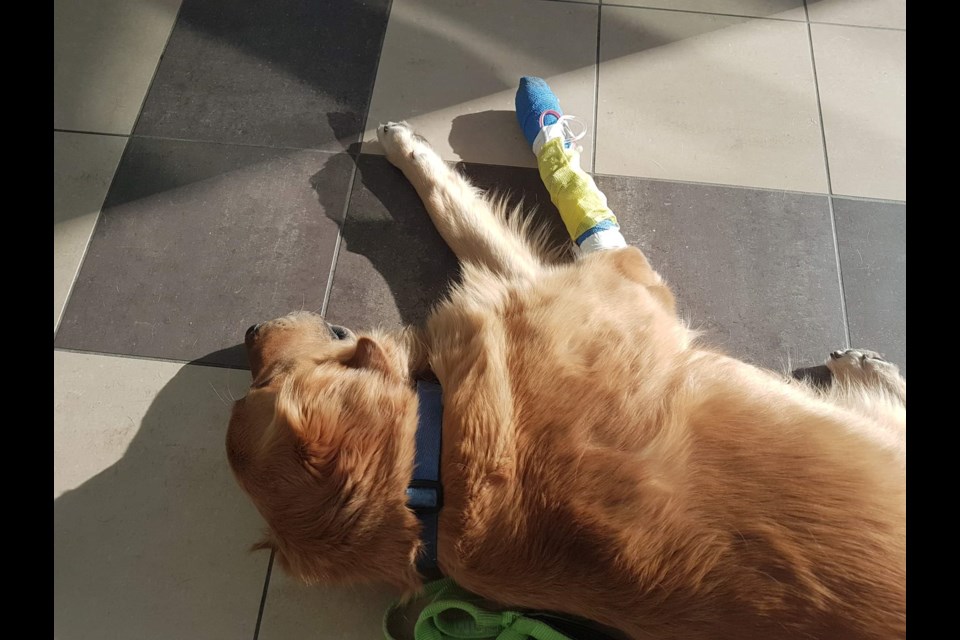Dogs get into all kinds of mischief, but owners don't want to worry about their dog eating something they shouldn’t, like cannabis, when they are playing at the park.
Cooper is a three-year-old, 65-lbs., golden labrador retriever. Tim Mallon took Cooper to Green Meadows Park on May 11 like he does everyday. Hours after they got back he noticed Cooper wasn’t acting like his normal self.
He had a fever, dilated eyes, lethargy and a very low heart rate. Considering Cooper’s symptoms, veterinarians thought he had either eaten an opioid or crystal meth.
A urine test showed the presence of THC, the main psychoactive compound in marijuana.
"It's a pot problem, a more prevalent thing in our society now," Mallon said. “There should be a message there that you shouldn’t be carrying personal use (pot) in public spaces.
“I’ve been telling anyone I see going by our home or any dog people I know,” Mallon added of warning people.
Cooper had eaten cannabis he found at the park. There could have been other drugs mixed in the cannabis, judging by his symptoms and slow recovery time, according to what Mallon recalls the veterinarian telling him.
“He’s not even exhibiting typical pot responses. Apparently there is more drooling and uncontrollable peeing,” said Mallon.
It took three days for Cooper to fully recover. The cost of the treatment came to about $1,700.
Victoria Road Animal Hospital veterinarian Maegan Melillo treated Cooper when he first came in with concerning symptoms.
“This is something our industry anticipated a little bit. I mean leading up to 2018 when cannabinoid products were legalized here in Ontario we kind of based our expectations on how things panned out in the (United) States,” said Melillo.
She said when marijuana was legalized in Colorado there was a four to 10 per cent increase in THC toxicity cases in animals. She said it is likely in Ontario more cases of THC toxicity have arisen in animals with more recreational cannabis.
“I knew he was stoned based on his clinical symptoms,” she said. She didn’t have any drug test trips at the time but Cooper was tested when he went to another veterinarian for continued treatment.
Melillo originally treated Cooper with the worst case scenario being he ate an opioid to cover all the bases because an overdose can occur in dogs too.
“When you’re walking your dog off leash you have no idea what they can get into.”
